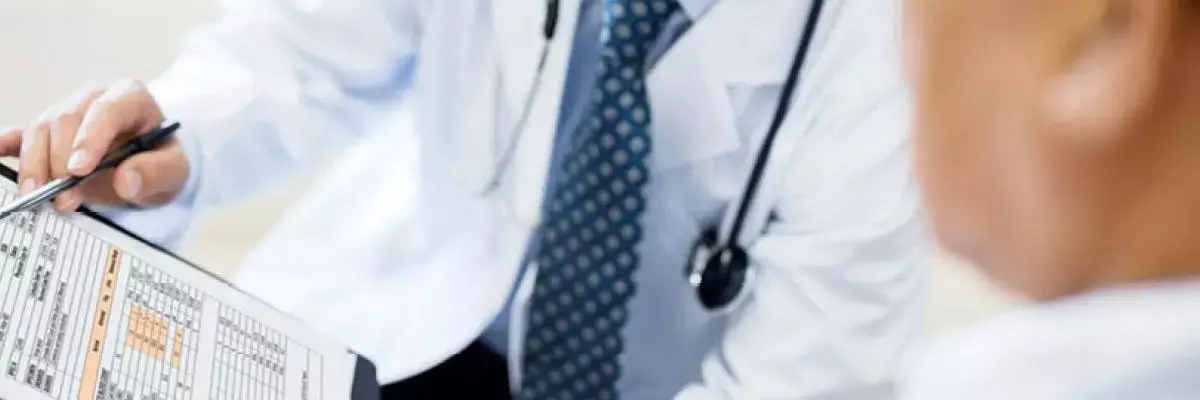- Home
- Medical news & Guidelines
- Anesthesiology
- Cardiology and CTVS
- Critical Care
- Dentistry
- Dermatology
- Diabetes and Endocrinology
- ENT
- Gastroenterology
- Medicine
- Nephrology
- Neurology
- Obstretics-Gynaecology
- Oncology
- Ophthalmology
- Orthopaedics
- Pediatrics-Neonatology
- Psychiatry
- Pulmonology
- Radiology
- Surgery
- Urology
- Laboratory Medicine
- Diet
- Nursing
- Paramedical
- Physiotherapy
- Health news
- Fact Check
- Bone Health Fact Check
- Brain Health Fact Check
- Cancer Related Fact Check
- Child Care Fact Check
- Dental and oral health fact check
- Diabetes and metabolic health fact check
- Diet and Nutrition Fact Check
- Eye and ENT Care Fact Check
- Fitness fact check
- Gut health fact check
- Heart health fact check
- Kidney health fact check
- Medical education fact check
- Men's health fact check
- Respiratory fact check
- Skin and hair care fact check
- Vaccine and Immunization fact check
- Women's health fact check
- AYUSH
- State News
- Andaman and Nicobar Islands
- Andhra Pradesh
- Arunachal Pradesh
- Assam
- Bihar
- Chandigarh
- Chattisgarh
- Dadra and Nagar Haveli
- Daman and Diu
- Delhi
- Goa
- Gujarat
- Haryana
- Himachal Pradesh
- Jammu & Kashmir
- Jharkhand
- Karnataka
- Kerala
- Ladakh
- Lakshadweep
- Madhya Pradesh
- Maharashtra
- Manipur
- Meghalaya
- Mizoram
- Nagaland
- Odisha
- Puducherry
- Punjab
- Rajasthan
- Sikkim
- Tamil Nadu
- Telangana
- Tripura
- Uttar Pradesh
- Uttrakhand
- West Bengal
- Medical Education
- Industry
Serum Phosphate may predict Temporary Hypocalcaemia after Total Thyroidectomy

Hypocalcaemia is the commonest complication following total thyroidectomy and is mainly due to parathyroid insufficiency. A study published in the Indian Journal of Surgery suggests serum phosphate can be a reliable predictor of post-thyroidectomy hypocalcaemia which aids in early management thus avoiding complications and reducing treatment cost.
Despite the expertise of surgeons, postsurgical hypocalcemia remains a prevalent complication in patients undergoing total thyroidectomy and/or central lymph node dissection, causing high post-operative morbidity and compromising the quality of life and increasing costs to the health system. Some efforts have been made to find, intra and post-operative hypocalcemia predictors in an attempt to prevent and reduce the number of post-operative admissions to the emergency room, and improve morbidity. For the same purpose, Dr Sukumaran conducted a study to evaluate the effect of serum phosphate levels in predicting temporary hypocalcaemia.
It was a prospective cross-sectional study of 118 patients (104 female; 14 male) who underwent total thyroidectomy, at Amrita Institute of Medical Sciences, Kochi, from June 2014 to June 2016. The researcher assessed the Patients serum calcium and phosphate levels pre-operatively, on the evening of surgery (day 0), on the morning of day 1 and over the following week until discharge.
Key findings of the study were:
♦Among 118 patients, thirty-seven developed biochemical hypocalcaemia (< 7.8 mg/dL) out of whom, 31 were symptomatic.
♦The researcher noted thirty-six patients (30.5%) developed treatment requiring symptomatic hypocalcaemia, out of whom, 5 did not have a drop in serum calcium levels.
♦He observed 46 patients had a rise in serum phosphate level and 42 patients had temporary hypocalcaemia among which 29 had a day 1 hyperphosphataemia and 33 had early hyperphosphataemia.
♦He also observed a total of 44 patients with early hyperphosphataemia. He reported that most of the patients who developed hypocalcaemia (15 patients) did so on the second post-operative day.
♦After analysis, he found the change in mean values of serum phosphate from baseline pre-operative value to day 0 and to day 1 was significant in those patients who developed hypocalcaemia on day 2.
The author concluded, "Serum phosphate can be used as a reliable predictor of post-thyroidectomy hypocalcaemia which would help in the safe early discharge of patients".
For further information:
https://doi.org/10.1007/s12262-020-02160-8
Medical Dialogues Bureau consists of a team of passionate medical/scientific writers, led by doctors and healthcare researchers. Our team efforts to bring you updated and timely news about the important happenings of the medical and healthcare sector. Our editorial team can be reached at editorial@medicaldialogues.in.
Dr Kamal Kant Kohli-MBBS, DTCD- a chest specialist with more than 30 years of practice and a flair for writing clinical articles, Dr Kamal Kant Kohli joined Medical Dialogues as a Chief Editor of Medical News. Besides writing articles, as an editor, he proofreads and verifies all the medical content published on Medical Dialogues including those coming from journals, studies,medical conferences,guidelines etc. Email: drkohli@medicaldialogues.in. Contact no. 011-43720751


